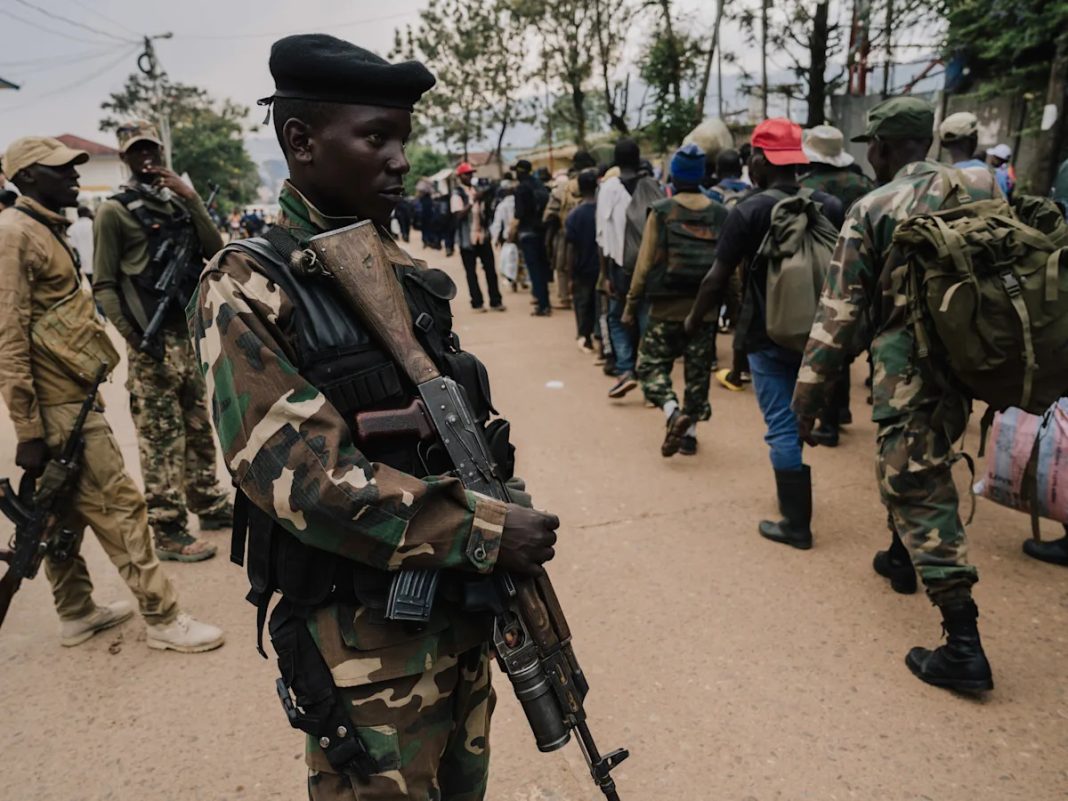The Democratic Republic of Congo (DRC) and the M23 rebel group have signed a declaration of principles in Qatar to end fighting in eastern Congo.
The declaration was signed on Saturday between representatives from both sides in Doha.
The DRC and Rwanda-backed M23 rebels have been engaged in heavy fighting, spurred by M23’s bloody January assault and capture of the DRC’s two largest cities.
The decades-long conflict has roots in the 1994 Rwandan genocide, with M23 made up primarily of ethnic Tutsi fighters.
The fighting has killed thousands and displaced hundreds of thousands more this year while escalating the risk of a full-blown regional war.
Several of Congo’s neighbours already have troops deployed in the volatile region.
In March, Qatar brokered a surprise meeting between DRC President Felix Tshisekedi and his Rwandan counterpart Paul Kagame during which they called for an “immediate and unconditional” ceasefire.
That led to direct talks, also in Doha, between the DRC and M23.
The DRC had previously rejected the idea of holding talks with M23, branding it a “terrorist group”, but in April, both sides pledged to work towards a ceasefire.
Talks in the US
Washington has also hosted talks between the DRC and Rwanda in June.
On June 27 the two countries’ foreign ministers signed a peace deal and met with United States President Donald Trump at the White House. Trump warned of “very severe penalties, financial and otherwise” if the deal is violated.
Trump also invited Tshisekedi and Kagame to Washington to sign a package of deals that Boulos dubbed the “Washington Accord”.
Speaking to reporters on July 2, White House adviser Massad Boulos said the Trump administration would “love” to hold that meeting at the end of July.
But he also said US officials hope to have a deal in Doha finalised by then.
The DRC, the United Nations and Western powers say Rwanda is supporting M23 by sending troops and arms.
Rwanda has long denied helping M23 and says its forces are acting in self-defence against DR Congo’s army and ethnic Hutu fighters linked to the 1994 Rwandan genocide, including the Democratic Forces for the Liberation of Rwanda (FDLR).

